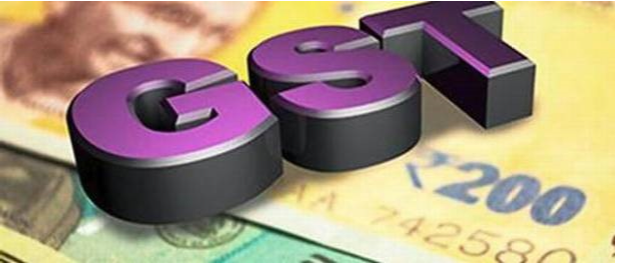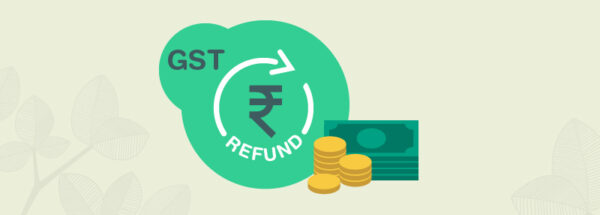1. Introduction:
As per Section 2(98) of the CGST Act, 2017 ‘reverse charge’ means the liability to pay tax by the recipient of supply of goods or services or both instead of the supplier of such goods or services or both under sub-section (3) or sub-section (4) of section 9, or under sub-section (3) or sub-section (4) of section 5 of IGST Act, 2017.
It is pertinent to mention here generally it is the responsibility of the supplier to pay GST to the Government (though he can collect same from customer) which is apparent from sub-section (1) of section 9 of CGST Act / sub-section (1) of section 5 of IGST Act, 2017 wherein the taxable person viz supplier is liable to pay tax. However such liability for payment of tax is shifted onto the recipient where Government believes it would be administratively efficient and will ensure recovery of taxes and such payment by the recipient is referred to as as payment under reverse charge mechanism.
In accordance to the powers conferred under sub-section (3) / (4) of section 9 of CGST Act, 2017 and under sub-section (3) / (4) of section 5 of IGST Act, 2017, Notifications have been issued by Govt, notifying the situations wherein certain supply of goods or services would be under ambit of reverse charge mechanism if such goods or services are received by specified persons mentioned therein.
In this article we shall discuss about the accounting treatment of the transactions which are subject to payment of tax under reverse charge mechanism (RCM).
2. Prerequisites for making correct payment / accounting of GST under RCM:
In order to ensure correct accounting treatment and payment of RCM liability the following are the prerequisites.
(a) Identify the nature of inward supplies viz goods / services , inter-state/ intra-State and as to whether they are subject to payment under reverse charge mechanism under the Notifications issued by Govt. Further it should be ensured that goods / services received are not exempt as in such cases no payment under RCM would be required.
(b) Determining of time of supply of inward supplies of goods or services which are subject to RCM and making payment of tax thereon accordingly.
(c) Admissibility of input tax credit in respect of tax paid under reverse charge. ITC can be availed if admissible as per Section 16 and 17 of the CGST Act,2017.
3. Time of Supply of RCM inward supplies:
The time of supply is the time when the liability to pay tax arises. Special provisions have been provided in GST law for determining the time of supply in reverse charge cases i.e where tax is to be paid by the recipient of supply.
Time of Supply of Goods (Sec.12(3) of the CGST Act,2017)
In case of reverse charge, the time of supply of goods shall be the earliest of the following dates:
(a) The date of receipt of goods OR
(b) The date of payment* OR
(c) The date immediately after THIRTY days from the date of issue of invoice by the supplier (31st day from date of invoice).
If it is not possible to determine the time of supply under (a), (b) or (c), the time of supply shall be the date of entry in the books of account of the recipient.
*The date of payment shall be earlier of the date on which the recipient entered the payment in his books OR the date on which the payment is debited from his bank account.
Time of Supply of Services (Sec.13(3) of the CGST Act,2017)
In case of reverse charge, the time of supply of services shall be the earliest of the following dates:
(1) The date of payment** OR
(2) The date immediately after SIXTY days from the date of issue of invoice by the supplier (61st day from date of invoice).
If it is not possible to determine the time of supply under (1) or (2), the time of supply shall be the date of entry in the books of account of the recipient.
**The date of payment shall be earlier of the date on which the recipient entered the payment in his books OR the date on which the payment is debited from his bank account
4. Accounting Ledgers to be maintained for RCM under GST:
Separate ledgers for dealing with liability towards the RCM liabilities and Input Tax Credit thereof is required to be maintained by the taxpayer in its accounts.
The list of ledger accounts to be opened are as under:
- CGST-Output Tax-RCM (Liability head for booking RCM CGST liability)
- SGST-Output Tax-RCM (Liability head for booking RCM SGST liability)
- IGST-Output Tax-RCM (Liability head for booking RCM IGST liability)
- CGST-Interim Input Tax-RCM (Asset head for booking interim ITC which, if admissible will be availed upon payment of RCM CGST).
- SGST-Interim Input Tax-RCM (Asset head for booking interim ITC which, if admissible will be availed upon payment of RCM SGST).
- IGST-Interim Input Tax-RCM (Asset head for booking interim ITC which, if admissible will be availed upon payment of RCM IGST).
- CGST-Input Tax-RCM (Asset head for booking ITC which upon payment of RCM SGST).
- SGST-Input Tax-RCM (Asset head for booking ITC which upon payment of RCM SGST).
- IGST-Input Tax-RCM (Asset head for booking ITC which upon payment of RCM IGST).
Apart from above for making payment of tax from E cash ledger / credit of ITC to electronic credit ledger , ledger account of ‘E-cash ledger’ and ‘E-credit ledger’ for each of the three taxes viz CGST, SGST and IGST would also be required to be opened.
Further in case the tax payer is not eligible for 100% ITC and as per Sec 17(1) / (2) is required to reverse pro rata credit, he also needs to maintain ‘ITC Reversal A/c ‘ for all the three taxes wherein the reversed amount of ITC would be temporarily parked before transfer of the amount to respective expense account.
5. Accounting Treatment of reverse charge: Illustrations
Illustration 1:
Legal services of Rs 1,00,000/- are obtained from Mr X, advocate by a business entity located in the taxable territory. Suppose Invoice is issued by the advocate (naturally without GST) on 10th June, 20XX.
The payment of the invoice is made by the business entity on 20th July,20XX. It is pertinent to mention here that Legal services are covered under RCM as per Sec 9(3) of the CGST Act, 2017. Considering the location of advocate and the place of supply (location of recipient of legal services) is in same State CGST and SGST will have to be paid @ 9% at piece.
As per Time of Supply provisions, the time of supply in above case arises on 20th July,20XX as payment has been made within 60 days of the date of invoice.
a.Accounting entry on receipt of invoice of advocate (10th June, 20XX)
| Legal Expenses A/C Dr. | 1,00,000/- | |
| To TDS on professional fee (Income Tax TDS) | 10000/- | |
| To Mr X, Advocate | 90000/- |
Note: No GST liability booked as time of supply as per Section 13 of the CGST Act is not attracted. It may be noted that TDS under GST law is not applicable in reverse charge cases.
b. Accounting entry on payment of invoice of advocate (20th July, 20XX)
| Mr X, Advocate | 90000/- | |
| CGST – Interim Input Tax RCM Dr. | 9000/ | |
| SGST – Interim Input Tax RCM Dr. | 9000/- | |
| To CGST – Output Tax – RCM | 9000/- | |
| To SGST – Output tax – RCM | 9000/- | |
| To Bank | 90000/- |
Note: Liability has been created in above entry for payment due towards GST under RCM. Further ITC has been booked in interim ITC accounts which will subsequently be transferred to main ITC accounts, upon payment of GST under RCM.
In case the ITC is blocked under Section 17(5) like renting of motor vehicle (which is also subject to RCM), the GST payable should not be debited to Interim Input tax Credit A/c as above and rather should be debited to the relevant expense account.
c. Accounting Entry on making payment of GST under RCM with transfer of ITC amount in main ITC heads.(20th August,20XX)
| CGST – Output Tax – RCM Dr. | 9000/- | |
| SGST – Output Tax – RCM Dr | 9000/- | |
| CGST-Input Tax-RCM | 9000/- | |
| SGST-Input Tax-RCM | 9000/- | |
| CGST – Interim Input Tax RCM Dr. | 9000/- | |
| SGST – Interim Input Tax RCM Dr. | 9000/- | |
| To E-cash Ledger CGST A/c | 9000/- | |
| To E-cash Ledger SGST A/c | 9000/- |
Note: The above entry captures payment of GST under RCM through e-cash ledger and transfer of interim ITC amounts to main ITC heads. It may be noted that RCM liability can be paid using E-cash ledger only and ITC cannot be utilized against RCM liability.
As time of of supply was 20th July,20XX the payment date alongwith filing of GSTR-3B for month of July,20XX will be 20th August,20XX.
Upon filing of GSTR-3B the amount in Input Tax Account will be transferred to ‘E-Credit Ledger’ Account and from which it can be utilised for payment of GST on outward supplies.
Illustration 2 (Delayed payment) :
Suppose in Illustration 1 , the actual payment was made to the Mr X, advocate on 4th November,20XX.
In this case the accounting entries would be as under:-
a.Accounting entry on receipt of invoice of advocate (10th June, 20XX)
| Legal Expenses A/C Dr. | 1,00,000/- | |
| To TDS on professional fee (Income Tax TDS) | 10000/- | |
| To Mr X, Advocate | 90000/- |
Note: No GST liability booked as time of supply as per Section 13 of the CGST Act is not attracted. It may be noted that TDS under GST law is not applicable in reverse charge cases.
b. Accounting entry on trigerring of time of supply on 10th August,2020 (61st day from date of invoice)
| CGST – Interim Input Tax RCM Dr. | 9000/ | |
| SGST – Interim Input Tax RCM Dr. | 9000/- | |
| To CGST – Output Tax – RCM | 9000/- | |
| To SGST – Output tax – RCM | 9000/- |
Note: Liability has been created in above entry for payment due towards GST under RCM as time of supply has been attracted, even though payment to advocate has not been made. Further ITC has been booked in interim ITC accounts which will subsequently be transferred to main ITC accounts, upon payment of GST under RCM.
In case the ITC is blocked under Section 17(5) like renting of motor vehicle (which is also subject to RCM) , the GST payable should not be debited to Interim Input tax Credit A/c as above and rather should be debited to the relevant expense account.
c. Accounting Entry on making payment of GST under RCM with transfer of ITC amount in main ITC heads (20th September,20XX)
| CGST – Output Tax – RCM Dr. | 9000/- | |
| SGST – Output Tax – RCM Dr | 9000/- | |
| CGST-Input Tax-RCM | 9000/- | |
| SGST-Input Tax-RCM | 9000/- | |
| CGST – Interim Input Tax RCM Dr. | 9000/- | |
| SGST – Interim Input Tax RCM Dr. | 9000/- | |
| To E-cash Ledger CGST A/c | 9000/- | |
| To E-cash Ledger SGST A/c | 9000/- |
Note: The above entry captures payment of GST under RCM through e-cash ledger and transfer of interim ITC amounts to main ITC heads. It may be noted that RCM liability can be paid using E-cash ledger only and ITC cannot be utilized against RCM liability. As time of of supply was 10th August,20XX the payment date alongwith filing of GSTR-3B for month of August,20XX will be 20th September,20XX.
Upon filing of GSTR-3B the amount in Input Tax Account will be transferred to E-Credit Ledger Account and from which it can be utilised for payment of GST on outward supplies.
d. Accounting entry on payment of invoice of advocate (4th November, 20XX)
| Mr X, Advocate | 90000/- | |
| To Bank | 90000/- |
Note: As GST has already been paid under RCM on above , GST is not required to be paid again upon making payment to advocate.
Illustration 3 (ITC Reversal) :
Considering the facts as in Illustration 2, what would be the additional entries for ITC reversal in case 50% of ITC is required to be reversed as per Section 17(1) / (2) of the CGST Act,2017.
Accounting entry of ITC reversal
| ITC Reversal – CGST A/c | 4500/- | |
| ITC Reversal – SGST A/c | 4500/- | |
| To CGST-Input Tax-RCM | 4500/- | |
| To CGST-Input Tax-RCM | 4500/- |
Accounting entry of transfer of ITC reversal amount to relevant expense account
| Legal Expense | 9000/- | |
| To ITC Reversal – CGST A/c | 4500/- | |
| To ITC Reversal – SGST A/c | 4500/- |
Illustration 4 (Advance payment):
What will be the accounting treatment under Illustration 1, in case advance amount of full Rs 1 lakh was made to Mr X , Advocate on 10th May,20XX.
a. Accounting entry on making payment of advance amount (10th May,20XX)
| Advance to Advocate A/c Dr | 1,00,000/- | |
| CGST – Interim Input Tax RCM Dr. | 9000/ | |
| SGST – Interim Input Tax RCM Dr. | 9000/- | |
| To CGST – Output Tax – RCM | 9000/- | |
| To SGST – Output tax – RCM | 9000/- | |
| To TDS on professional fee (Income Tax TDS) | 10,000/- | |
| To Bank | 90,000/- |
Note: The time of supply is attracted upon making advance payment to Advocate and accordingly liability to pay tax has arisen.
b. Accounting Entry on making payment of GST under RCM .(20th June,20XX)
| CGST – Output Tax – RCM Dr. | 9000/- | |
| SGST – Output Tax – RCM Dr | 9000/- | |
| To E-cash Ledger CGST A/c | 9000/- | |
| To E-cash Ledger SGST A/c | 9000/- |
Note: The above entry captures payment of GST under RCM through e-cash ledger.
As time of of supply was 10th May,20XX the payment date alongwith filing of GSTR-3B for month of May,20XX will be 20th June,20XX.
Upon filing of GSTR-3B the amount in Input Tax Account will be transferred to ‘E-Credit Ledger’ Account and from which it can be utilised for payment of GST on outward supplies.
c. Accounting Entry on completion of supply by Advocate and receipt of invoice from Advocate (15th July,20XX)
| Legal Expenses A/c Dr. | 1,00,000/- | |
| CGST-Input Tax-RCM | 9000/- | |
| SGST-Input Tax-RCM | 9000/- | |
| CGST – Interim Input Tax RCM Dr. | 9000/- | |
| SGST – Interim Input Tax RCM Dr. | 9000/- | |
| To Advance to Advocate A/c | 1,00,000/ |
Note: As per Section 16 of the CGST Act,2017, ITC can be availed only after receipt of supply and therefore the ITC was not availed at time of making payment of GST on advance payment to advocate, and the ITC was parked in Interim ITC Account.
Now upon receipt of supply and invoice from advocate, the legal expense is being booked by squaring off the advance account, along with transfer of ITC amounts from Interim ITC Accounts to regular ITC Accounts, from which the amount will be transferred to E Credit ledger which shall be used for payment of tax on outward supplies.
***
[rainbow]Don’t miss the next GST Update / Article / Judicial pronouncement[/rainbow]
Subscribe to our newsletter from FREE to stay updated on GST Law
Resolve your GST queries from national level experts on GST free of cost.
Frah Saeed is a law graduate specializing in the core field of indirect taxes and is the Co-founder of taxwallah.com. She has authored many publications on GST and is into full-time consultancy on GST to big corporates. She as a part of taxwallah.com heads a team comprising of Chartered Accountants and Advocates and plays a key role in our mission to disseminate GST knowledge to all.




